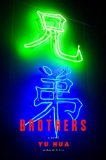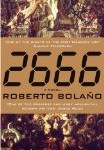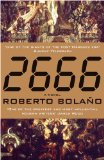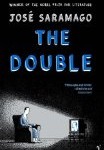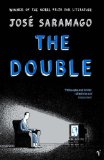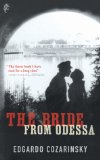Winner of France’s Prix Courrier International 2008, Shortlisted for the Man Asian Literary Prize 2008
Translated from the Chinese by Eileen Cheng-yin Chow and Carlos Rojas
I bought this book after seeing a wonderful review written by Frances from Nonsuch Book on the Lost in Transtaltion Challenge site, and I was very pleased that this book was brought to my attention.
Brothers is an epic story of life in modern China. At over 600 pages it was a daunting book to read, and took me over 6 weeks to reach the end, but it was well worth the effort.
Baldy Li and Song Gang are step-brothers, living in poverty in a small Chinese town. The book follows them as they grow up together, striving to make the most of their lives and bring themselves out of the cycle of poverty. I loved Baldy Li’s character – his entrepreneurial spirit warmed my heart and I was rooting for him throughout. As with all great characters he exhibited some flaws – his childish obsession with looking at women’s bottoms was very strange for me to read about, but I think it accurately reflected the thoughts of a teenage boy and so I felt that I understood him more as a result.
This book had many strange moments and contained things that you would never find in a typical western novel. One of the most enjoyable aspects of reading books from other cultures, especially Asian ones – is that you never know what is going to happen next! I don’t want to say too much about the plot, as I don’t want to spoil anything, but Brothers has it all: tragedy, comedy and a touching, complex plot.
Baldy Li lay on the floor like a dead pig, then crawled and sat in the entrance like a sick dog. His hunger made him let out a few wails, but crying made him feel even hungrier, so he immediately stopped. Baldy Li could hear the sound of the wind blowing through the tree branches and could see the sunlight shining on his toes. He thought to himself, If I could munch the rays of sunlight like stir-fried pork and drink the wind like a bowl of meat broth, then I’d be set.
It is easy to read, but it’s length means that I would only recommend it to those who have already fallen in love with Asian literature and are looking for something with a bit more depth.
![]()
Note: This book isn’t for the prudish – it contained many sexually explicit scenes (including a very unusual section concentrating on hymens!) and some graphic violence.
I have never looked at the Man Asian Literary Prize 2008 before, but after the success of this book I am very intrigued.
Have you read any books shortlisted for this prize?
Do you love Asian literature?

